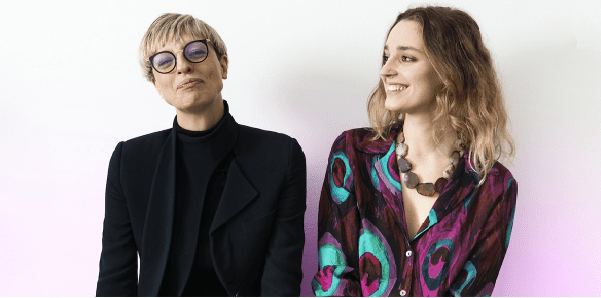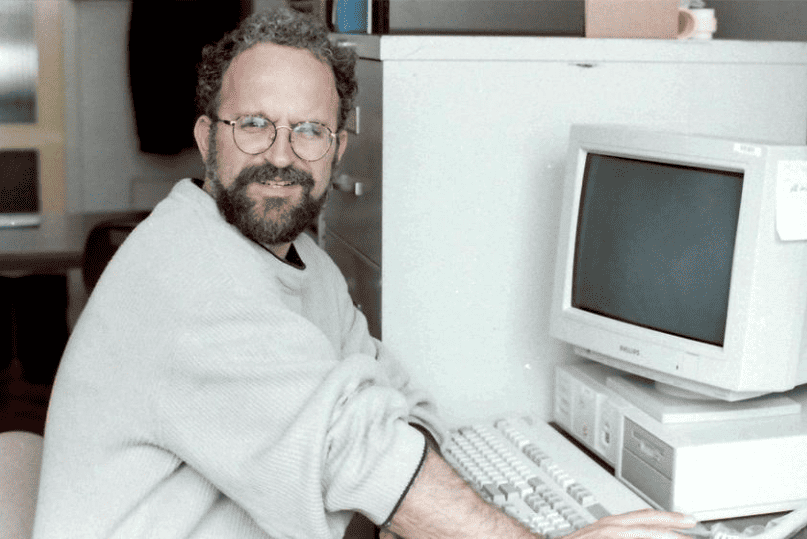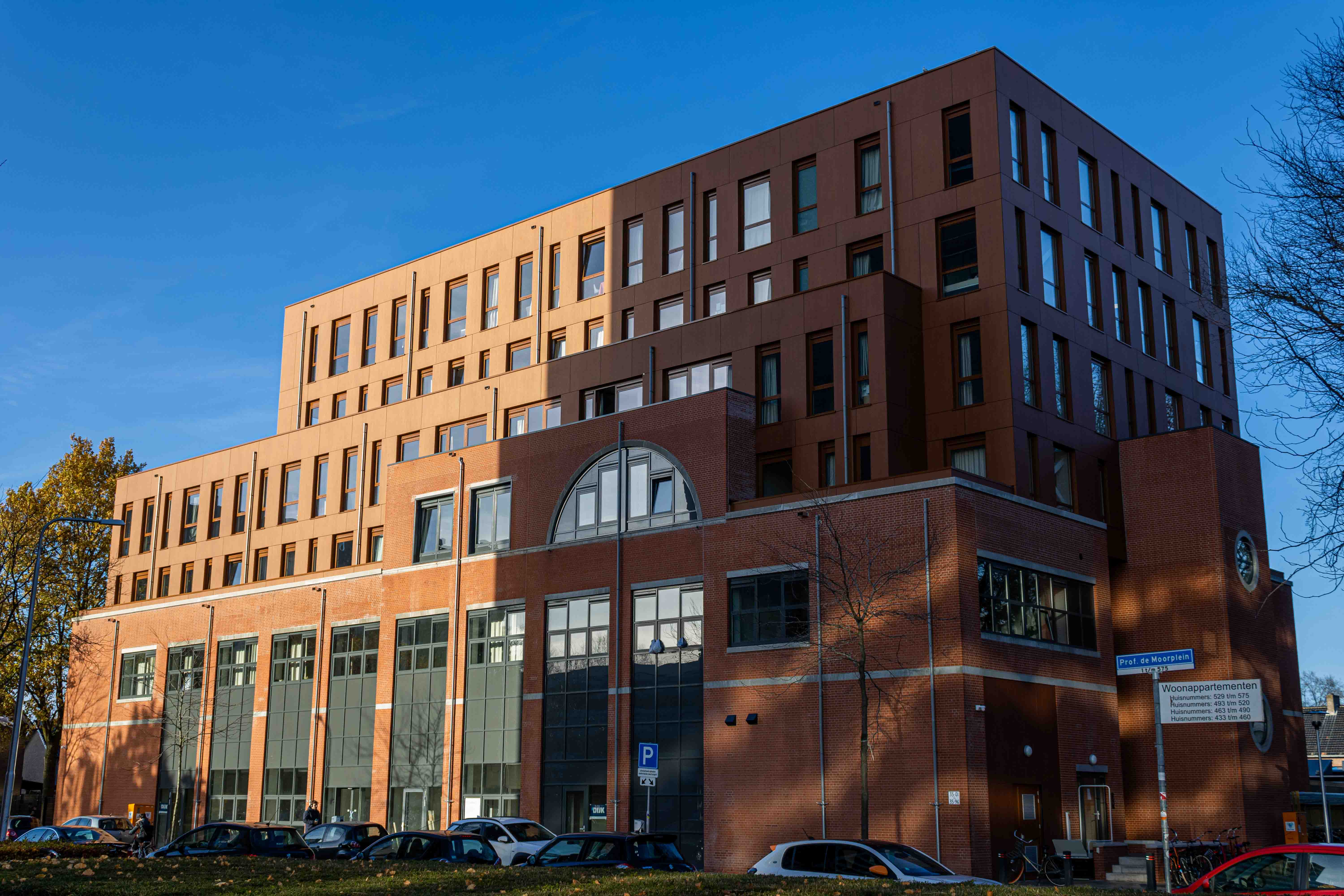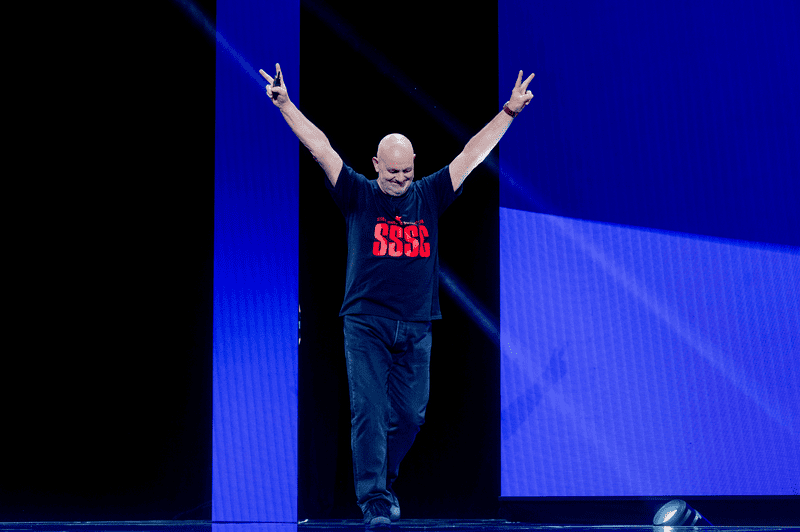
Innovation Origins is delving deeper. In addition to the usual news items about innovation and technology, our journalists spend a week zooming in on important topics. Our first dossier about start-ups founded by women. Read all our articles here.
During her law and economics studies in Rotterdam, Eline Leijten was part of the Hermes House Band as a singer. Thanks to the reputation of this casual student band, clients were always lining up. They gave about seventy shows a year in The Netherlands and abroad.
Once she graduated, she started a band under another name. Suddenly arranging gigs turned out not to be so straightforward anymore. The band couldn’t be found on Google. They were mainly reliant on word of mouth. At the same time Leijten reached the age when loads of friends suddenly got married. They kept on telling her how much effort they had to make in order to find the right music for that special occasion amongst the deep recesses of the internet. Leijten: ‘I found that really weird. Weren’t these all young people, just like me, who arranged everything online? Then what made finding that one band, or that one artist for the right occasion so complicated?
By now, Leijten had a good job as a strategy consultant. She quit her job in order to fully focus on her company. Her mission: to modernize and democratize the music world. She launched her website in 2016, and within four years Plugify, with about two and a half thousand affiliated artists, has grown into the leading booking site for artists in The Netherlands.
What is your product exactly?
Plugify is a digital platform that offers artists a stage and boosts their ability to be found on the web. At the same time, it makes it easier for consumers to find the right music for their parties and events, sorted according to music genre and divided into subcategories. From brass band to singer-songwriter and everything in between.

What problem do you resolve with that?
Plugify builds a two-way bridge between artists and clients. The site is transparent in terms of both price and quality, as artists can link their own audio samples and videos to it. Clients are also able to post reviews. Moreover, the site enables artists to have more control over their bookings. For example, Plugify’s payroll partner processes payments, which were often delayed or neglected in the past. Now one working day after the performance is standard. That saves a lot of administration time for the artists. Consequently, the emphasis is on unburdening both parties.
What distinguishes your product from the competition?
In the past, artists were booked through booking agencies or with the intervention of – often shadowy – intermediaries, who in turn usually charged a ludicrously high margin for their services. Anywhere from a reasonable 15% to as much as 100%. At Plugify, the artist pays a minimum commission of 15% per booking. The rest of the proceeds go to the artists themselves. In addition, they are free to set their own price. The consumer can in turn view these prices and compare them with those of other artists.
You have been in business for a couple of years already. What were the most difficult periods?
It is always difficult when team members leave. But that’s also part of the deal: people come and go. For instance, last year we found a very good, software developer who is a woman. However, after three months she left for the US for personal reasons. What made finding a replacement even more difficult in this particular case is that this market is currently extremely overwrought. There is a huge run on software developers. Thankfully, in the meantime we have been able to add a developer from Ukraine to the team who really understands his profession.
Although these kinds of personnel changes always result in a minor setback, especially when it concerns a field you don’t have a background in yourself. In that case, not only are you unable to step in and sort things out yourself … But you also really need someone for the job interviews who can assess a candidate’s level of competence. However, recruiting artists is not that difficult. They tend to turn up and join up themselves. The challenge for Plugify is to be able to bind potential clients to the platform who book performances more than once. That’s what our marketing is mainly focused on.
Which achievements are you particularly proud of?
I am most proud of the Plugify brand that we have created with our team and the impressive customer satisfaction scores that we get back from our users over and over again. That’s why you do it in the end. A lot of PR came out of our crowdfunding campaign back in 2016. Winning several pitch competitions that year and the year after also contributed to our brand awareness.
Have you ever had the feeling that you were treated differently because you are a woman?
In general, it is much harder to get investors interested in your product if you are a woman; particularly a young woman. That’s not just my own experience, but has repeatedly been proven by research. The world of venture capital investors is a male bastion where diversity – also in terms of aspects other than gender – is still extremely limited. The investors I speak to sometimes react in amazement, as in: did you really build up your company on your own?
If you happen to be pregnant as well (Leijten is visibly pregnant at the time of the interview, ed.) the danger is that such an interview will just be about that. Instead of about the growth potential of your company. No matter how well intentioned it all is, at the end of the day it all comes down to: are we in business with each other or not? The fact that you’re pregnant shouldn’t detract from what you’re doing as an entrepreneur.
But at the same time, I definitely don’t want to ignore my pregnancy, all the more so because I think it’s important to convey – also to other young women – that a company and a family life can go hand in hand. But when it comes to a woman, these kinds of conversations often have the tendency to focus on the division between work and private life. Something that would not happen so readily to a man.
What do you think should be done about that?
Only 1.6% of venture capital in The Netherlands goes to companies founded solely by women, according to research conducted in 2018 by Eva de Mol (see also the recent IO article ‘Borski Fund wants women’s entrepreneurship to flourish’). The female to male ratio is also skewed as far as investors are concerned. Women are excellent entrepreneurs, albeit sometimes with other qualities than male entrepreneurs. Even though entrepreneurship is associated with courage and a huge amount of self-confidence, women are often regarded as more restrained and modest. You need those qualities just as much in my view. In order to close this investment gap, last year a large group of leading Dutch venture capital funds launched the FundRight initiative.A groundbreaking statement with self-imposed goals for drastically increasing gender diversity in venture capital within three years (see IO article: ‘‘Invest in women for a change!’ ).
It is unique in the world that such an initiative came from within the sector itself! I am proud to have co-initiated this with a number of others in the industry, including Constantijn van Oranje, Janneke Niessen, Eva de Mol and Simone Brummelhuis. By the way, I also really enjoy working with men on this. I can see that there is a lot of support for it, especially among my generation.
The fact that teams that are more diverse perform better is now widely acknowledged. I also applaud the fact that we are moving towards multi-dimensional entrepreneurship beyond the traditional, purely capitalist model, which revolves around scaling up companies as quickly as possible and then selling them for the highest possible price. Women have different characteristics and qualities than men, and ultimately society as a whole benefits from more balance.
What are your plans for the future?
We are currently undertaking a new round of investments and the further expansion of our brand awareness within The Netherlands, but we are looking further afield too. Cross-fertilization with Flanders is already taking place. This is not such a surprise. After all, there is no language barrier and Flemish people know how to find Dutch websites very easily. In addition, Plugify is currently a consumer platform, but in the future we will focus more on B2B. Such as the hospitality sector and the business community.
The majority of private bookings, such as weddings and funerals, are one-off events. Whereas just here in Amsterdam I can’t tell you how many cafes and restaurants want to have a jazz band play every Sunday morning. They also want to be able to present a variety of artists. For a platform like Plugify it’s therefore attractive to build up a returning client base. Finally, in the long run we might expand the range to include other stage performers, such as cabaret.”













